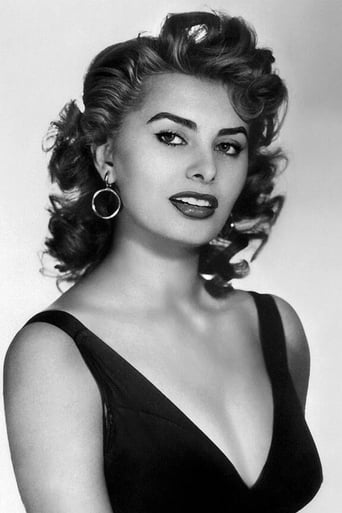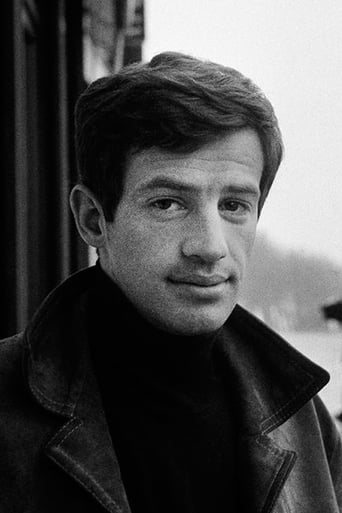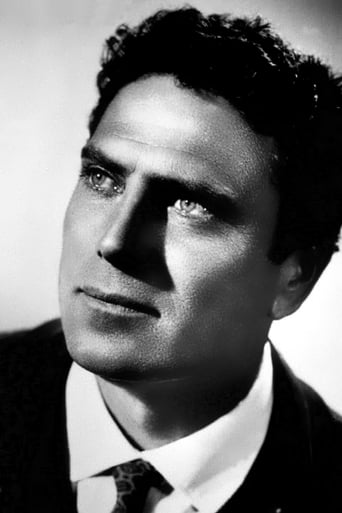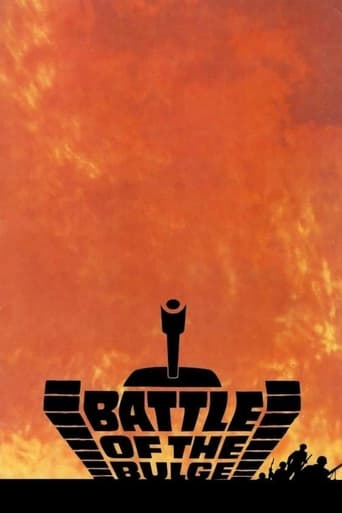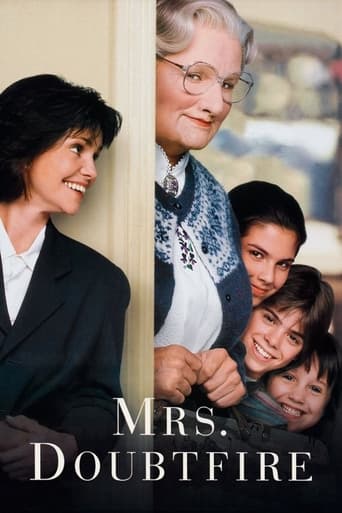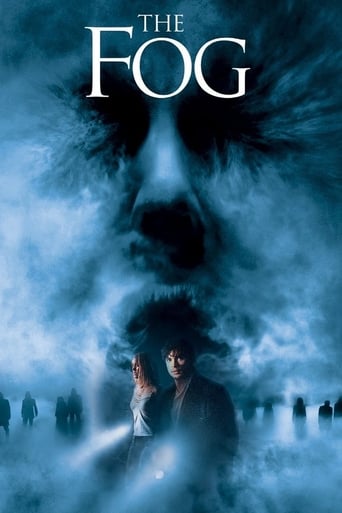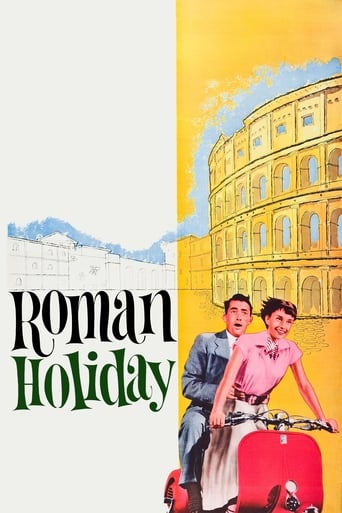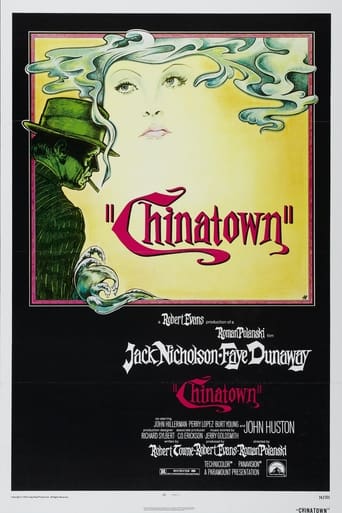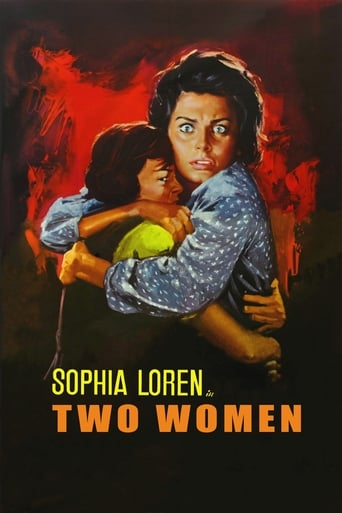
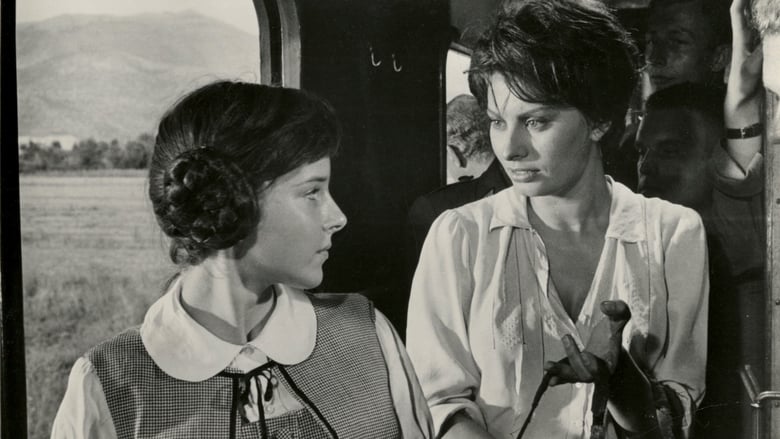
Two Women (1961)
Widowed shopkeeper Cesira and her 13-year-old daughter Rosetta flee from the allied bombs in Rome during the second World War; they travel to the remote village where Cesira was born. During their journey and in the village and onward, the mother does everything she can to protect Rosetta. Meanwhile, a sensitive young intellectual, Michele, falls in love with Cesira.
Watch Trailer
Cast


Similar titles
Reviews
I just had the privilege of watching a double feature on "TCM on Demand" that consisted of two of my two favorite Sophia Loren films, "Two Women" (1960) and "A Special Day" (1977). Unlike many of her comedies and lighthearted films, these two movies highlighted her most serious, dramatic roles, and, in my view, her very best performances. Yes, she is certainly a magnificent looking woman, but these two accomplishments by themselves prove that she is also an outstanding professional who gives 100% of herself with superior results.While the production of "Two Women" preceded "A Special Day" by seventeen years, the first took place in 1944 during the closing days of World War II following the Allied victory at Monte Cassino in Italy while the second occurred in 1938 when Hitler visited Rome during the early stages of the same war. Both films were produced by Loren's husband, Carlo Ponti, and superbly illustrate the tragic, human cost of a prolonged and very brutal war, one at the beginning of the conflict and the other near its end. In "Two Women", Ms. Loren's marvelous effort earned her a well deserved Oscar as the first performance to win the award in a foreign language film. Her outstanding work was was augmented by the overall, excellent direction of Vittorio de Sica ("Bicycle Thieves", "Umberto D") and the moving musical score of Armando Trovajoli, who has accumulated a staggering 196 films, both American and Italian, to his credit. She also received very impressive support by Eleanora Brown, who appeared in her very first film at age twelve.Without revealing too much of the climactic scene in the abandoned, bombed out church, the director's skill at developing an ominous atmosphere, including the disturbed birds through the opening in the roof, allowed the viewer to expect trouble but not necessarily the calamity of the shocking episode that followed. Then, soon after the incident, we observe the forms of two dehumanized women as if they are inanimate rocks, drained of life itself, cast to the side of the road. After seeing the movie, I did some research on the actual circumstances of "Marocchinate", a term the Italians gave to the brutal, barbaric campaign of Moroccan troops under the command of the French in which they allegedly raped thousands of Italian women and murdered hundreds of civilian men who tried to protect them. Many of the attacks occurred in the region called Ciociaria, located to the southeast of Rome in central Italy, hence the actual title of the movie, "La Ciociara", or the women of Ciociaria. I was very surprised that these atrocities under the command of the Allies have not been officially and sufficiently documented. The silent reaction from the French to the events depicted in this film is even more shocking. It is not too late for the French government to address these very serious allegations more directly and more thoroughly.
Definitely I think a film where it helped to have some context before watching. After the battle of Monte Cassino in WWII, some Moroccan troops under French colonial command, went on a massive rape spree in the surrounding countryside of Ciociaria, you can read about the numbers involved, but really it's beyond understanding. But to an Italian audience watching a WWII movie called La Ciociara (literally the woman from Ciociaria) I guess they would have known what was going to be happening in the movie. I was not aware of the incident and it just seemed like a bizarre and affronting denouement to the movie, too weird to invent. It turns out that once again, the truth is stranger than fiction. In Italy the victims are known as the Marocchinate, literally those given the Moroccan treatment.The lead up to the outrage is always hinting at danger, but the movie is in fact quite sweet. It's about a lady and her daughter (Cesira and Rosetta) who return to the village of her humble origins from Rome whilst the Allies are bombing. They are both very lovely people, who meet Michele, a man in between their ages (played by Belmondo) who is an intellectual. There are some brilliant scenes for example when Cesira points out to Rosetta that Michele is a subversive, and when Rosetta asks what that means, Cesira says, "a nice man who doesn't want to work". And there she has it in a nutshell, despite barely being able to write. It occurs to me that all liberal education is really there for is to make up for natural deficits, but Cesira doesn't actually have those deficits. The movie just seemed full of natural wisdom. Although the movie shows how abject and shocking life can be, it also makes you fall in love with love, the way Cesira, Rosetta and Michele love each other is just so perfect. I also liked a movie that understood that an intellectual is just another of the pilgrims on the way to Canterbury.Sophia Loren received the Best Actress Oscar here, the first time an Oscar had gone to a performance in a non-English language movie. Like Gillo Pontecorvo's Kapò, another Italian war movie from the same year it treads a dangerous ice by utilising formalism when depicting earth-shatteringly hideous events.
A moving and visually stunning film, Two Women is a story about the heartache and trials of war by director Vittorio De Sica. As with his other movies, this director deals with vulnerable human beings, to expose the injustice of a harsh world; in this case, a widow, performed by Sophia Loren, and her daughter, Eleanora Brown. These are the two women. The widow is an independent and determined shop-keeper and a loving mother. In the midst of war, she flees the bombing of Rome to return to the country. At first, she is revived by the change from city to country life, but soon realizes that no place can escape the ravages of war. While in the country, she becomes close to a scholarly young man (Jean Paul Belmondo) who reads the Bible and is respected by the people in his village for his sincerity and idealism. The black/white film emphasizes the characters and the movie is appreciated as a classic without any superficiality. We see village life disrupted by soldiers invading homes and planes disturbing the peaceful setting. This has a corrosive effect on the lives of the people, not to mention the lives lost or ruined. We get a sense of this in a pivotal scene involving the two women. Vittorio De Sica spent his career acting as well as directing. But he is one of the most accomplished of directors and made his mark as a champion of those afflicted by poverty and rejection.
Sophia Loren is truly memorable in her Oscar winning performance of 1961.She portrays a mother trying to help her child survive World War 11 in Italy.Unable to put up with the bombings in Rome, she decides to flee with her daughter to the countryside. There she will meet adventure after adventure.A widow, who had been married to a much older man, she had a lover whose only wish is that a bomb should fall on his wife so that he could be free to marry Loren.During her adventure, she meets Michele, solemnly played by Jean-Paul Belmondo. A man who had one time thought of becoming a priest, he lusts for her before tragedy ensues.The molestation scenes are adeptly depicted. This was also an unfortunate part of war.A memorable film made better by Loren's captivating performance. A gem of a film.


